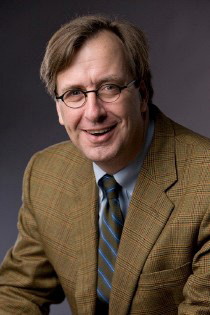PUBLISHER'S LETTER
From the Publisher
In 1905, S.C. Thomas Sze, a freshly graduated Cornell mechanical engineer, returned to his native China to work as a locomotive superintendent on the Peking Mukden Railway. Today he is remembered as the man who developed the Chinese railroad network, as well as becoming a force in Chinese power distribution and banking.
I mention "Tommy" Sze because he so well represents the spirit of global engagement that has been part of the Cornell ethos since the university's founding. I could just as easily mention the work of Hing Kwai Fung '11 in modernizing Chinese agriculture or our participation during the 1920s in the Cornell-Nanking Crop Improvement Program. Indeed, Cornell has great pride in the legacy of its international tradition.
Last March, however, President David Skorton issued a white paper citing "evidence of slippage of the quality and focus of international programs" at Cornell. That's why – together with Provost Kent Fuchs and Weill Cornell Medical College Provost for Medical Affairs Laurie Glimcher – he charged a task force, comprising 10 faculty members, to develop a plan to arrest this slippage. The task force has now made 27 sweeping recommendations to return Cornell to the forefront of excellence in international studies and activities.
This will take investment, and President Skorton has pledged $3 million a year for the next five years for international programs. Beyond that, the task force report calls for fundraising to create an endowment of at least $70 million. There are also new alliances that are certain to enhance our global activities – in particular, as our cover story explains, a recent partnership with CARE, one of the world's largest humanitarian organizations.
Of course, as our cover story points out, the mission that has been passed down from our historic land-grant status has always included a commitment of service that aspired to reach beyond the local or regional. But, as Professor Rebecca Stoltzfus, who is profiled in our cover story, notes in a video made to celebrate the 150th anniversary of the Morrill Act, "It's just a reality of this century that we cannot separate the local from the global anymore."
I know that with such breadth and depth, examples of which you can read about in this issue, our evolving role as the land-grant university to the world will continue to strengthen.
Thomas W. Bruce
Vice President, University Communications

